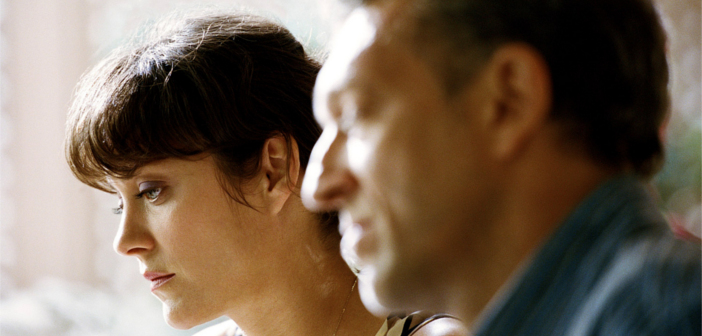Film Review | It’s Only the End of the World‘s Exploration of Familial Dysfunction Is All Brain and No Heart
How much can you criticize a film for achieving exactly what it sets out to do? This is the analytical quandary I’ve often found myself in when watching difficult films that don’t like their audiences very much. Michael Haneke’s Funny Games is a prime example. Xavier Dolan’s Cannes Grand Prix winning It’s Only the End of the World fits neatly into that same category. While not a brutally gratuitous exploration of the proliferation of violence, Dolan’s ruminations of toxic familial discord is at times about as tolerable as an infant’s birthday party in which cocaine was inadvertently mixed in with the cake. That is of course the point, but it’s hard to see most viewers willing to sacrifice watchability for harsh reality.
Based on Jean-Luc Lagarce’s vicious stage play of the same name, It’s Only the End of The World follows Louis, a gay playwright who is returning home having not seen any of his family for 12 years. Played by the impossibly handsome Gaspard Ulliel, Louis is terminally ill and decides to end this prolonged estrangement so he can tell his family of his imminent passing. In the dreamy prologue, Louis naively narrates to us that he “want[s] to be in control of [his] own death”, but his exasperating siblings and parents ensure he’ll never have this ownership. Even before the reunion, we can see why Louis abstained from family life for so long (note how long it takes him to walk to the front door from his taxi). Upon entering his childhood home, he soon becomes encumbered by a disconcertingly affectionate sister (Léa Sedoux), an insufferably gregarious mother and a cruelly unpredictable older brother Antoine (Vincent Cassel).

The bare-faced dysfunction of this troubled ménage means that communication is mostly done through passive aggression and simulated niceties. Family members struggle to say what they mean or what needs to be said as the mother, Martine, attempts in vain to maintain the façade that these are people with a rich storied history. “You shake hands like you’re strangers”, she tells Louis as he meets his brother’s wife (Marion Cotillard) for the first time. “They are Strangers” replies Antoine bluntly. Louis seems to never be able find the right time to reveal his secret, but perhaps he never desires to. He has one-on-one conversations which each of these characters, but they never go as planned, with them not wanting to know why he left or came back.
There’s no doubt that Dolan captures the bitter back-and-forth and petty pedantry that families can get lost in but the problem is that this is pretty much the only thing he captures. When the only note being played is this harsh, it can amount to 90 minute runtime that’s not always easy to bare. His last film Mommy had similarly excruciating scenes involving a young man with a personality disorder but that time out Dolan was smart enough to pepper the film with tender moments of emotional honesty.
[arve url=”https://www.youtube.com/watch?v=mLDP3U7gpnw” autoplay=”no” maxwidth=”750"]
The one thing that can be said positively about Dolan is that he’s certainly come out fully-formed as a filmmaker. This is his 7th feature, which is a staggering feat for someone who’s just 27. His camera is not a static one, rather it glides assertively throughout to exasperate moments of tension and probe characters who refuse to reveal much needed truths. In the final devastating moments, the film’s strongest, his skills are most apparent.
The film is far from a worthless exercise, it’s a complex mediation on the social barriers we create for reasons we ourselves seem unable to fully grasp. There is sure to be a contingent who adore it – after all, it won big at Cannes. The last scenes see Louis making empty promises to his family that he can’t possibly keep, a lie everyone goes along with. Everyone except Antoine that is, who is vilified for angrily forcing Louis away. Perhaps in the end, it’s the destructive brother, not the one reaching out, who sees the what the rest don’t: reality. It’s Only the End of the World is a clever film, but I just wish it had a heart to go with its brain.
It’s Only the End of the World is in cinemas now.

